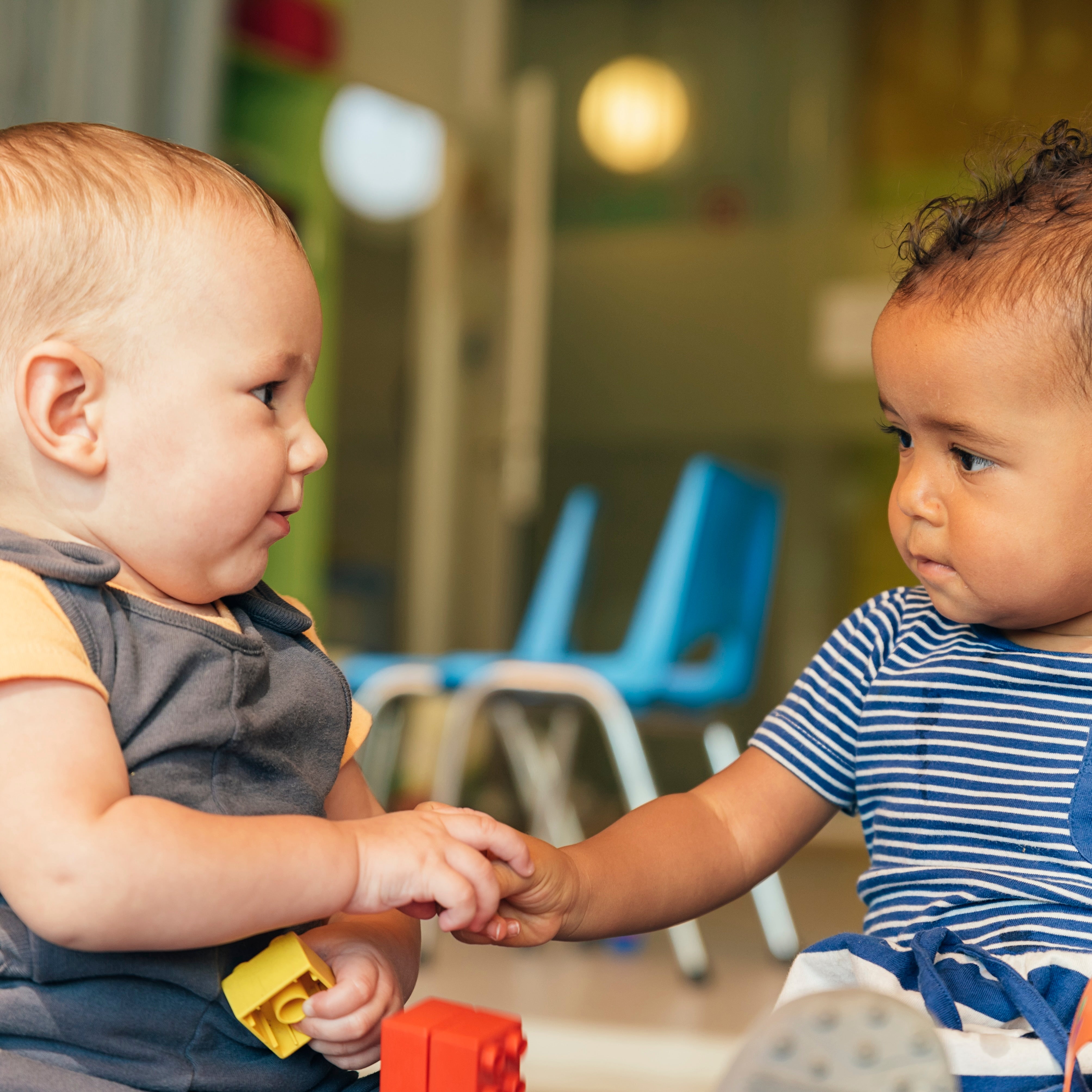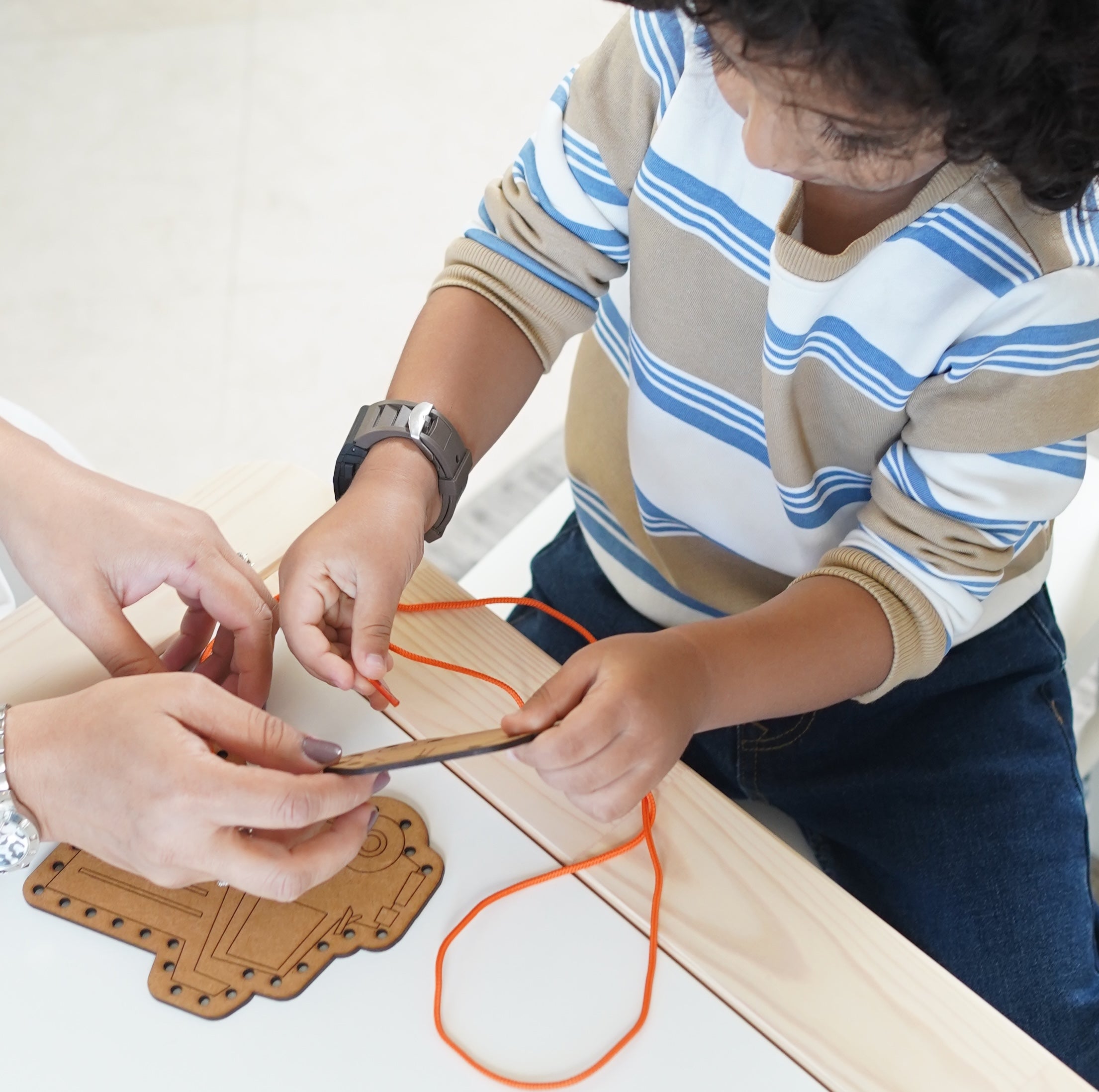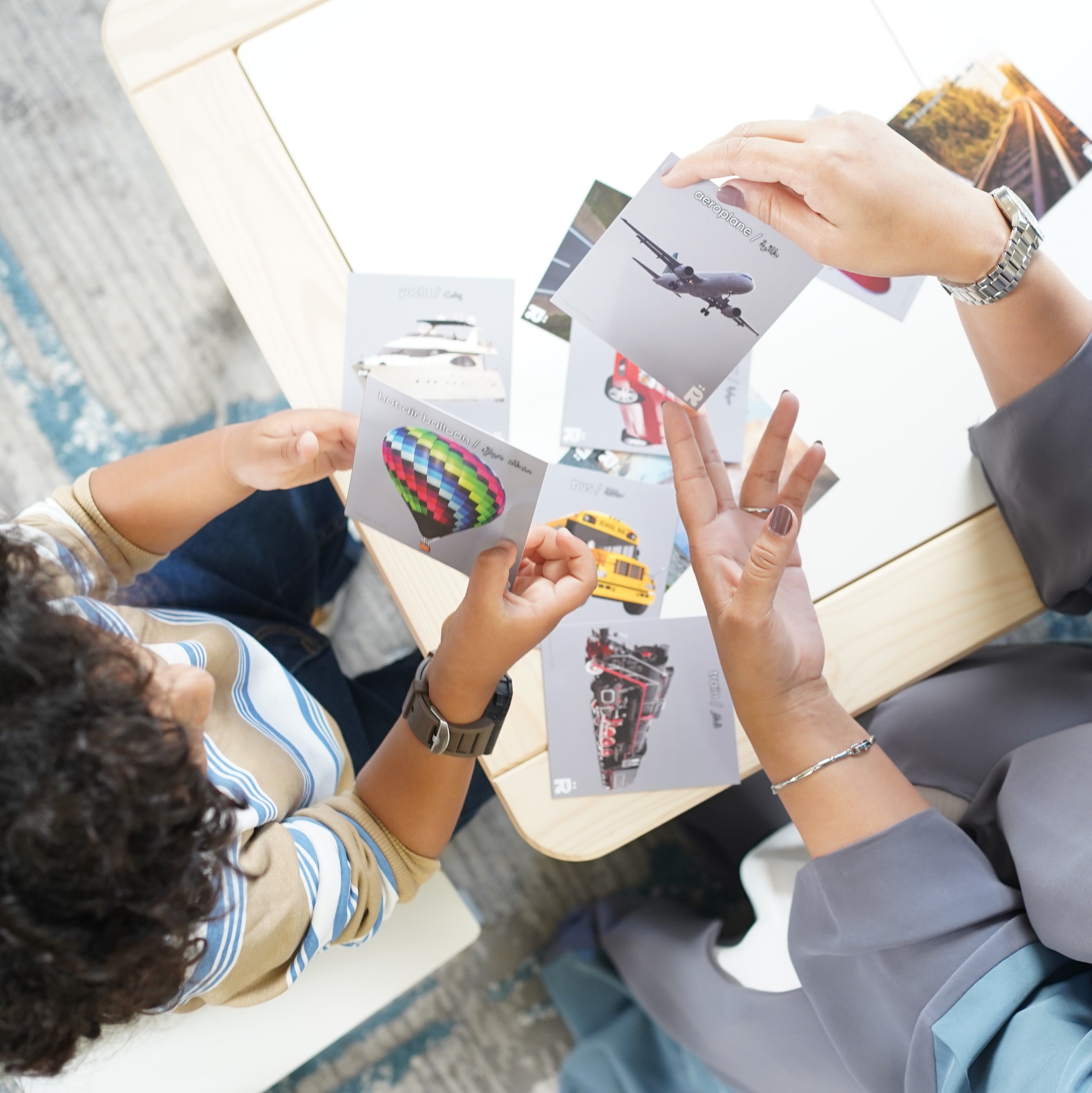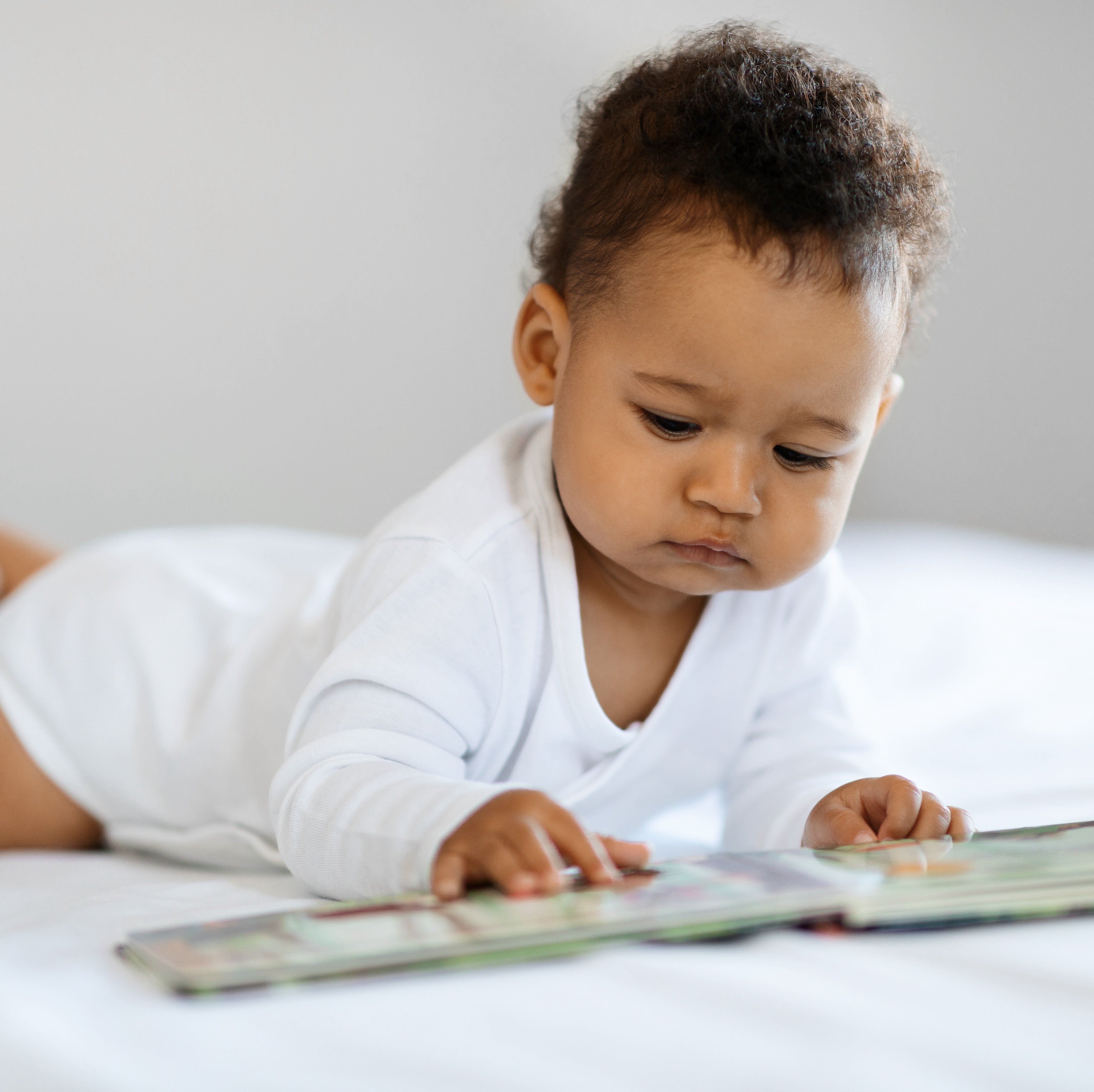Rehla Box is built on seven key areas of child development, inspired by research-backed frameworks from the UK and USA. Each activity is carefully designed to nurture your child’s learning, creativity, and skills. From communication and problem-solving to creativity and physical coordination, our science-based approach ensures your little one achieves key milestones while having fun. With hands-on play, themed exploration, and bilingual content, Rehla Box transforms everyday moments into meaningful opportunities for growth.
Start your child’s journey of discovery today!
Rehla Box 7 Development Pillars:


1. Communication and Language
Communication and Language emphasise listening, speaking, and understanding. Children engage in storytelling, discussions, and interactive play to enhance vocabulary and comprehension. These activities build confidence and social skills, fostering effective communication and laying the groundwork for literacy development, crucial for their future learning and interpersonal relationships.


2. Personal, Social and Emotional
This area emphasizes building self-esteem, emotional regulation, and social skills. Children learn to form positive relationships, share, take turns, and understand their feelings. Activities encourage independence and cooperation, helping children navigate social situations and develop empathy, resilience, and a sense of belonging within a community.


3. Physical
This area emphasizes both fine and gross motor skills. Fine motor skills are developed through activities like cutting, drawing, and manipulating small objects, enhancing dexterity and hand-eye coordination. Gross motor skills are cultivated through active play, running, and climbing, supporting overall physical fitness and coordination essential for children's growth.


4. Mathematics
This area introduces children to numbers, shapes, colours, measurements, and patterns, encouraging mathematical thinking through play and hands-on activities. Children explore concepts like counting, sorting, and basic operations in everyday contexts. Engaging in problem-solving activities helps them develop critical thinking skills and an understanding of mathematical principles in real-life scenarios.


5. Understanding the World
Children explore their environment, community, and cultures, fostering curiosity and awareness. This area includes learning about nature, technology, and historical concepts. Through observation, investigation, and discussions, children gain insights into the world around them, developing respect for diversity and an understanding of different perspectives and experiences.


6. Expressive Arts and Design
This area encourages creativity and self-expression through art, music, dance, and imaginative play. Children explore different media and materials, developing their artistic skills and imagination. Engaging in creative activities enhances their ability to communicate emotions and ideas, fostering innovation, problem-solving, and a lifelong appreciation for the arts.


7. Literacy

